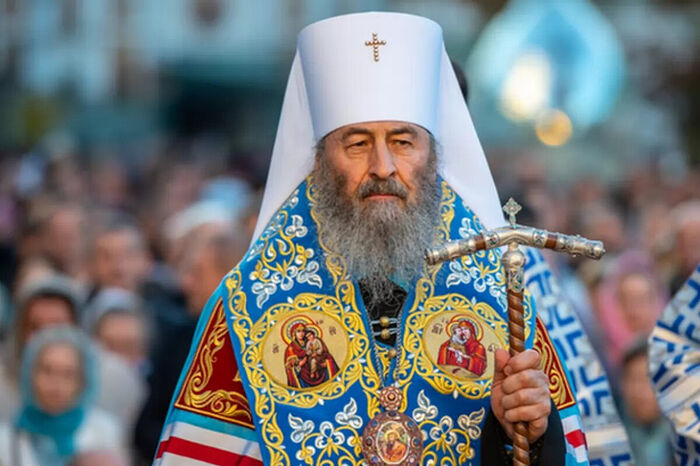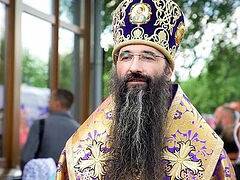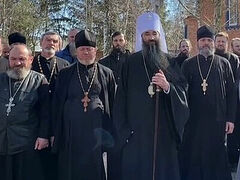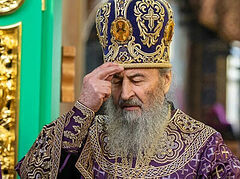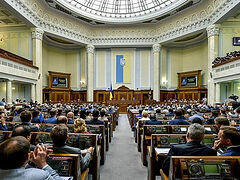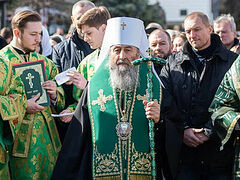Kiev, March 31, 2022
The new bills introduced into the Ukrainian Parliament aimed at shutting down the canonical Ukrainian Orthodox Church and confiscating its territory are based on lies, and are simply a continuation of the Poroshenko-era policies that helped bring about the terrible times that Ukraine is now experiencing, the Ukrainian Church says.
On the other hand, prominent voices within the schismatic “Orthodox Church of Ukraine” have unsurprisingly expressed support for two separate bills that were submitted and registered by the Verkhovna Rada earlier this month, which take aim at the Ukrainian Church because of its spiritual ties to the Moscow Patriarchate, which is centered in a country that Ukrainian law recognizes as carrying out military aggression against Ukraine.
Although the bills claim it’s necessary to ban the UOC for the sake of national security, there have been, in fact, no “complaints against the Ukrainian Orthodox Church regarding the violation of national security, sovereignty, and the territorial integrity of Ukraine,” the UOC's Legal Department states.
Although President Zelensky has called not to incite religious hostility during the war, the Deputies who authored the bills “deliberately make false statements against the Ukrainian Orthodox Church, trying to mislead the People’s Deputies and Ukrainian society.”
“These bills see a continuation of the religious policy of the Poroshenko era, which is one of the reasons for the terrible times that we are now experiencing, because a ban on the activities of the multi-million-strong Ukrainian Orthodox Church can’t but affect our state,” the statement continues.
And, as the Church has continuously pointed out, its religious center is located in Kiev, registered in accordance with Ukrainian legislation. This is why attempts to forcefully rename and ban the UOC have failed thus far—because it has no legal connection to the Moscow Patriarchate.
As he has always done, His Beatitude Metropolitan Onuphry of Kiev and All Ukraine has called on all the faithful to defend the state and its territorial integrity, and the people have stood united against Russia from the first days of the war, the Church recalls.
“But as we can see today, they’re trying to break this unity by provoking disputes on political, linguistic, and religious grounds. After all, due to the inability to win battles, the invaders are attempting sabotage through such bills in order to split Ukrainian society and weaken our state.”
Thus, the UOC Legal Department declares that the relevant bills are illegal, violate religious freedom, and will in no case contribute to national security or the sovereignty and territorial integrity of Ukraine, but will, on the contrary, “open a religious front on the peaceful territory of Ukraine and divide our country on religious grounds.”
Likewise, there are those in the Ukrainian government who understand that these bills are problematic. Commenting on the draft laws, presidential advisor Mykhailo Podolyak notes that the UOC has a different position than the Russian Orthodox Church on the war.
As the UOC Legal Department said, such bills will only split Ukraine at a time when it needs unity, the advisor added.
Conversely, Alexander Drabinko, one of the two hierarchs who left the Orthodox Church to join the OCU at the so-called “unification council” in December 2018, says now is an appropriate time to talk about banning the Ukrainian Orthodox Church.
“The history of Ukraine knows similar situations—the ban on the Communist Party and Soviet symbols,” Drabinko says.
The UOC needs to call a council and demand its independence from the Moscow Patriarchate, he continues. Such a call has been heard even from within several dioceses of the canonical Church, but at the same time, hierarchs such as His Eminence Metropolitan Anthony of Boryspil and Brovary, the Chancellor of the UOC, believe such monumental decisions mustn’t be made in times of great emotion.
Parliamentary Deputies can vote for these laws without remorse, Drabinko says, because they wouldn’t be voting against the UOC, but only reducing the numbers of the Russian Church, “whose leadership blessed the destruction of our Ukrainian people.”
And Evstraty Zorya, the speaker of the schismatic OCU, whose social media presence is mainly devoted to attacking the Orthodox Church, argues that the canonical Church is to blame for such bills because of its “stubborn lack of communication.”
Furthermore, he argues that the bills are actually aimed at protecting the faithful of the UOC from becoming tools of Russian aggression in Ukraine.
Follow OrthoChristian on Twitter, Vkontakte, Telegram, WhatsApp, MeWe, and Gab!

